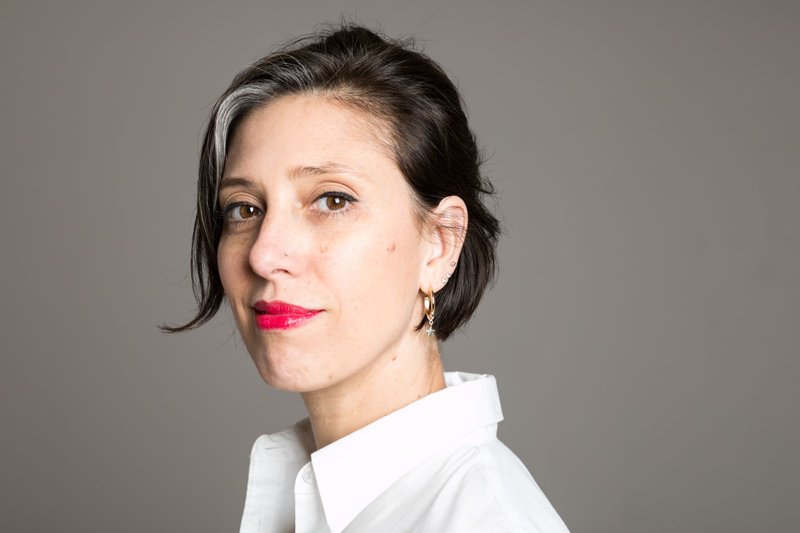Jimena Ferreiro

In 2022, 41 contemporary art curators, researchers, and museum directors from 24 different countries were awarded to attend the CIMAM 2022 Annual Conference. The CIMAM 2022 Annual Conference, titled "The Attentive Museum. Permeable Practices for a Common Ground", was held in Mallorca (Balearic Islands), Spain on 11–13 November, hosted by Es Baluard Museu d'Art Contemporani de Palma.
Jimena Ferreiro's Conference Report
My motivation to apply for the 2022 Travel Grants to attend the CIMAM 2022 Annual Conference lay in the opportunity to share reflections, debate, and exchange views on forms of museum governance with both museum leaders from around the world and intergenerational colleagues, who hold critical positions at institutions where mechanisms of segregation, exclusion, and invisibilization of colonial heritage still operate.
I am also interested in developing stronger international bonds to exchange knowledge and capitalize on the experience with the aim of building joint projects, South-South connections, or other axes that may be of regional relevance. In this sense, the principle of authority inherited from patriarchalism and narcissistic authorship are symptoms that affect curatorship, academic production, and the structures of cultural administration. They are traits we must eliminate in order to promote diverse and inclusive management of culture. The issues promoted by social demand must enter the curatorial field through mechanisms that allow new technical and poetic strategies. The management of new forms of life is only imaginable through new approaches that make it possible to go from merely being "topics of interest" to becoming transformative cultural practices. From the museums' management, we seek performative institutions until they say something new, in an attempt to avoid the traditional mechanisms of cultural arbitration.
Knowledge is always a situated thought and the museums are situated indeed and must rebuild their history to respond to the demands of their own communities of belonging. In that way, the CIMAM Annual Conference articulates the construction of common international agendas as well as understanding the situated character of each institution and its specific problems. To generate new attentive gazes, museums should question their own idea of "success", and reflect and make their history public in order to understand the mechanisms of invisibility that are lodged in their operation. For instance, the panel “Unlocking History and New Narratives”, coordinated by Agustín Pérez Rubio, focused on this aspect by adding artists to reflection, understanding that the issue of museums is not exclusive to professionals in the field of art history, theory, and cultural management. In this sense, it seems to me a good idea to summon the community of artists to the discussion because it is in solidarity with them that we will be able to rethink institutional practices in a permeable way, to continue building community with an attentive, critical, sensitive and mutually caring look. In addition, museums are spaces of care by nature and must be placed at the service of society, overcoming gender and race asymmetries. Care is not a passive activity and must avoid any type of subordination.
Collections change museums and enable the experience of space to be transformed towards a more vital and micropolitical “occupation”. In the current context of world crisis, sustaining critical artistic production is defending democratic and humanitarian values. In this sense, the presentations of the third and last day at La Lonja, coordinated by Manolo Borja-Villel and gathered under the title "Learning from the Community Collective Actions in the Face of Emergency" discussed projects that propose another model to the conventional canon. Are contemporary art museums a museum in the strict sense, or should they be thought of as more fluid organizations with forms of agency that go far beyond the field of art?
The decolonial museum is trauma and reconstruction, repair and resilience, and its commitment to contemporary issues must be expressed without spectacularization, ensuring that its governance does not have political or corporate determinations, as expressed by Mami Kataoka at the opening of the conference. The maximum commitment of the attentive museum is to the community which gives it meaning.
Finally, I would like to express my special thanks to Victoria Noorthoorn, Agustín Pérez Rubio, Suhanya Raffel, Eugene Tan, and Ernestine White-Mifetu, members of CIMAM's Travel Grant Selection Committee and the CIMAM Board, for accepting my application and allowing me to join this transformative experience. Fortunately, we will see each other next year in Buenos Aires!
Buenos Aires, November 2022